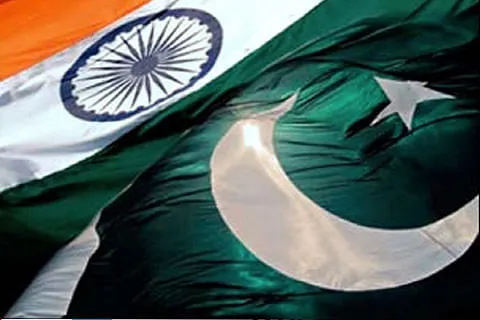There is no way to predict which way the Russian-Ukraine war will take? It is a very complex situation, the post-Cold War order has broken and there is a little hope of its getting restored anytime soon even after the war ends, which no one knows when and with what consequences in store.
A geo-strategic catastrophe is unfolding because of the failure of the diplomacy. This will have ripple effect for the whole of the world, and in such a scenario where nothing seems to be working, South Asian region will have to be more careful.
This region is prone to conflicts. The soil here has given birth to conflicts that have far-ranging consequences for the rest of the planet.
The Russian invasion of Ukraine, in some ways, has its roots in the invasion of Afghanistan by the Soviet Union in 1979, which ultimately ended by it pulling back its troops in the wake of the resistance offered by the US sponsored, and Pakistan trained “mujahadeen”, and finally the end of the Soviet Union.
The Russian president Vladimir Putin is an emotionless fellow and hard trained KGB man. The entreaties of the world have not impressed him, nor has he changed the course.
The West, this time has overplayed its hand, Ukraine is not Afghanistan and there is no Islamic ideology and commitment to make infidels flee from the soil. Afghanistan story never found a closure.
Its consequences are being felt world wide. Now with the whole attention of the world focused on Russia-Ukraine conflict, especially when the catastrophic dangers have surfaced, with Putin putting its nuclear-armed forces on high alert as a deterrence to the sanctions imposed by the US and European countries, Afghanistan finds itself on the margins.
The hunger and health crisis have become acute in the war-torn country, and suddenly all the countries that it was looking for help are themselves involved in the conflict – they are diverting their military aid and the treasure to the latest theatre of the conflict.
Viewed against this backdrop, abandoning Afghanistan in the state, in which it is today, Taliban rulers have lost their moorings, they have no knowledge and experience of governing the state – their pre-9/11 tryst with the governance was a disaster, and now they are in a worse situation.
Their all-time ally and supporter Pakistan is having troubles with the Taliban ruled Afghanistan, for the terror assaults emanating from Afghan soil have intensified. Most of these attacks have been mounted by the terror groups, TTP, with which Taliban has close relation.
Taliban has refused to oblige Pakistan. Tensions between the two have grown over the demarcation of their border as per Durand Line. This is a very bad situation for Pakistan, and Afghanistan, of course, is in a quagmire.
When countries of the size of Afghanistan are abandoned, there are consequences, and these consequences in the immediate aftermath will be inflicted on Pakistan and China.
And those who were mocking and taunting the United States for leaving Afghanistan in turmoil in August 2021, are finding themselves in a tight position. This is a real-time situation and unfolding before the naked eyes.
A disturbed Pakistan, in turn, as it is already suffering from severe economic crisis, is not in the interest of India. A table Pakistan, means for India, is a strategic necessity. Those drawing solace from the supposed balkanisation of Pakistan, have not counted the consequences of Pakistan in anarchy.
There are severe internal disturbances, and the establishment there is clueless how to bring order to the volatile situation. Military is not answer to all the problems, whether it is Balochistan, where all the resources of the province have been grabbed by the federal government or outsourced to China, or Khyber Pakhtunkhwa.
Sindh is having its own troubles, and the Punjab province is reeling from its political troubles. And, in such a situation when Pakistan is caught in between so many complex crises – one flowing from Afghanistan, combined by the internal disturbances and overall unrest and anger over the economic distress.
India is having its own problems. The large scale deployment of Chinese troops on its borders in Eastern Ladakh, the standoff refuses to melt; It is costing hugely on the Indian treasury, and with the Russia-Ukraine conflict having disturbed the economic scenario of the world- the oil prices are going up – prices have already crossed 100 dollars per barrel, any further rise would suppress the economic growth and lead to the inflation.
In a way, both India and Pakistan are caught in a geo-strategic bind. This is a challenging situation, here new concepts of diplomacy and dialogue would have to be explored if South Asia is to save itself from the disastrous consequences staring at the region.
That Pakistan Prime Minister Imran Khan was the first leader to meet Putin hours after the war broke out, and Prime Minister Modi, the first leader to dial the Russian President, telling him firmly to go in for ceasefire, should be used as a tool to ease the tensions.
This is such a rare occasion, where the history needs to be revisited and also rewritten to make South Asia region can play its role in stabilising the situations, ripping apart the world elsewhere. But for that, first India and Pakistan would have to see eye to eye with each other on such issues.
When the two nations, viewed by the world as historical adversaries, appear on the same platform, can change the script. The question is, will they?
Disclaimer: The views and opinions expressed in this article are the personal opinions of the author.
The facts, analysis, assumptions and perspective appearing in the article do not reflect the views of GK.







